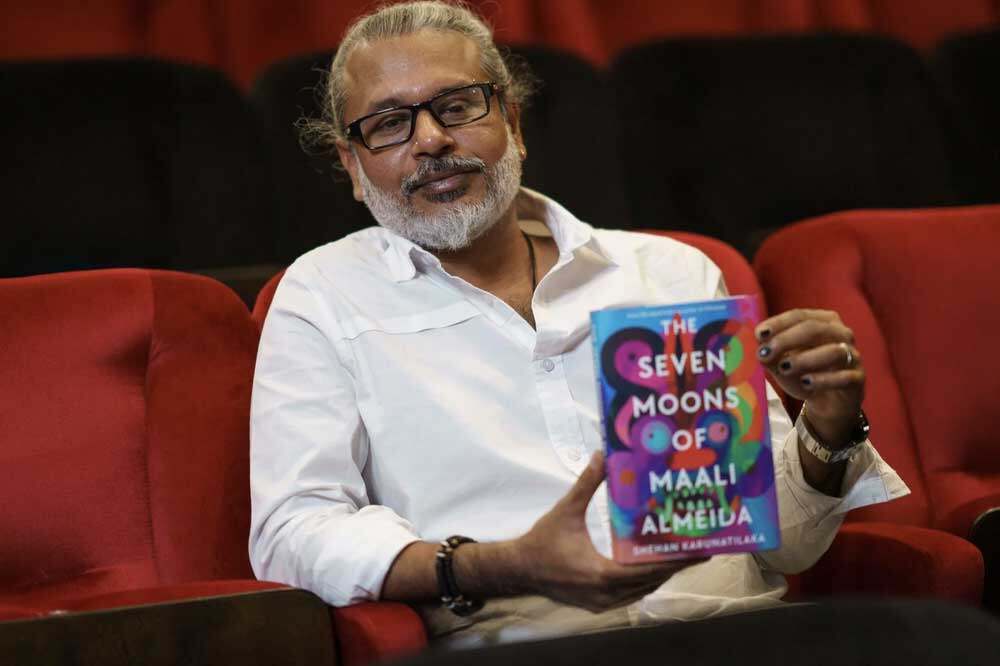After achieving notable success with his 2010 debut novel, Chinaman: The Legend of Pradeep Mathew, Mr Karunatilaka’s long-awaited second novel has accumulated praise from critics and the Booker judges alike.


Set in 1990, the novel follows Maali Almedia, a war photographer, gambler, and closeted gay man who has woken up dead. It has been summarised as a ‘Sri Lankan whodunnit and a race against time full of ghosts, gags, and deep humanity’. Mr Karunatilaka’s literary talent has been praised for giving ‘artistic justice’ to a terrible and bloody period in Sri Lankan history, creating a moving and unforgettable story.
Beating out five competing novels in a unanimous decision, Chair of the 2022 judges, Neil MacGregor, made the announcement that Seven Moons was this year’s winner at a ceremony at the Roundhouse in London.
What the judges particularly admired about Mr Karunatilaka’s novel was the “ambition of its scope, and the hilarious audacity of its narrative techniques. It is an entirely serious philosophical romp that takes the reader to ’the world’s dark heart’ — the murderous horrors of civil war Sri Lanka. And once there, the reader also discovers the tenderness and beauty, the love and loyalty, and the pursuit of an ideal that justify every human life.”
Mr Karunatilaka accepted the award with a speech where he addressed the people of Sir Lanka in Tamil and Sinhalese, saying he writes these books for them and urged them to keep sharing these stories.
He went on to share his hopes that the political situation in Sri Lanka will one day change so that his novel can “sit on the fantasy shelves of bookshops”.
Seven Moons took Mr Karunatilaka close to seven years to complete and uses the famous refrain from Kurt Vonnegut’s Mother Night: ‘We are what we pretend to be, so we must be careful about what we pretend to be’. In a recent interview with Booker Prize, Mr Karunatilaka says that ‘Uncle Kurt’ was a constant companion in his writing and for this novel in particular.
“I needed Uncle Kurt’s gallows humour to make sense of the afterlife my characters were stuck in and the circumstances under which they perished. The disgust Vonnegut felt for humanity and history’s barbarism resonated with the disillusion I felt for my beautiful island and the myopic fools who destroyed it. And his ability to view tragedy through the lens of the absurd, to blend genres and moods, and to be heart-breaking and hilarious within the space of a sentence, is the gold standard we all aspire to.”
Since making his mark on the world literary stage in 2011 with his first novel, Mr Karunatilaka has pursued a range of writing pursuits including screen plays, travel stories, and rock songs.
He grew up in Colombo, Sri Lanka, but after moving to Aotearoa New Zealand, began studying at the Manawatū campus in 1993. He completed a Bachelor of Arts in 1996 and a Diploma in Business and Administration in 1998.



































